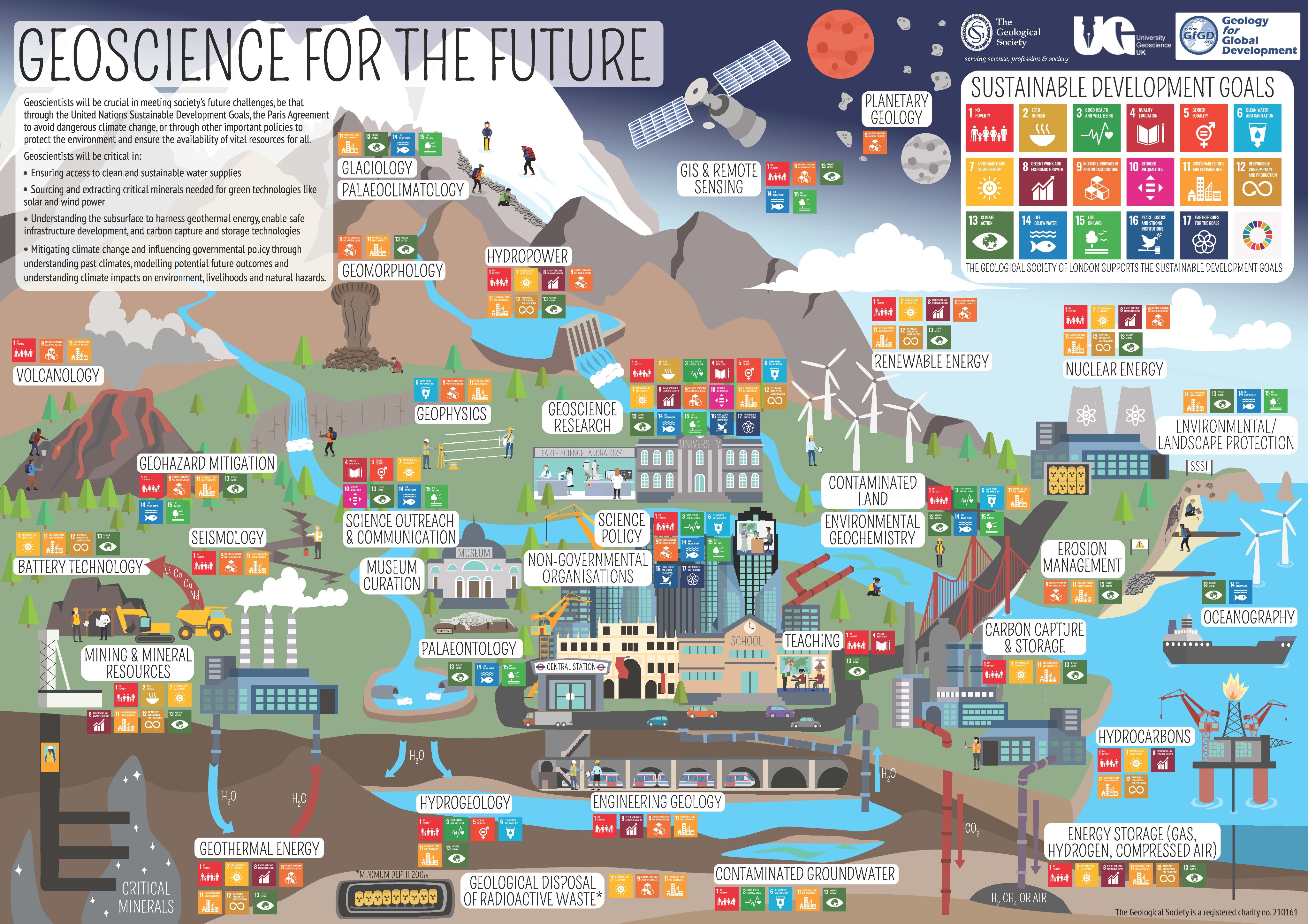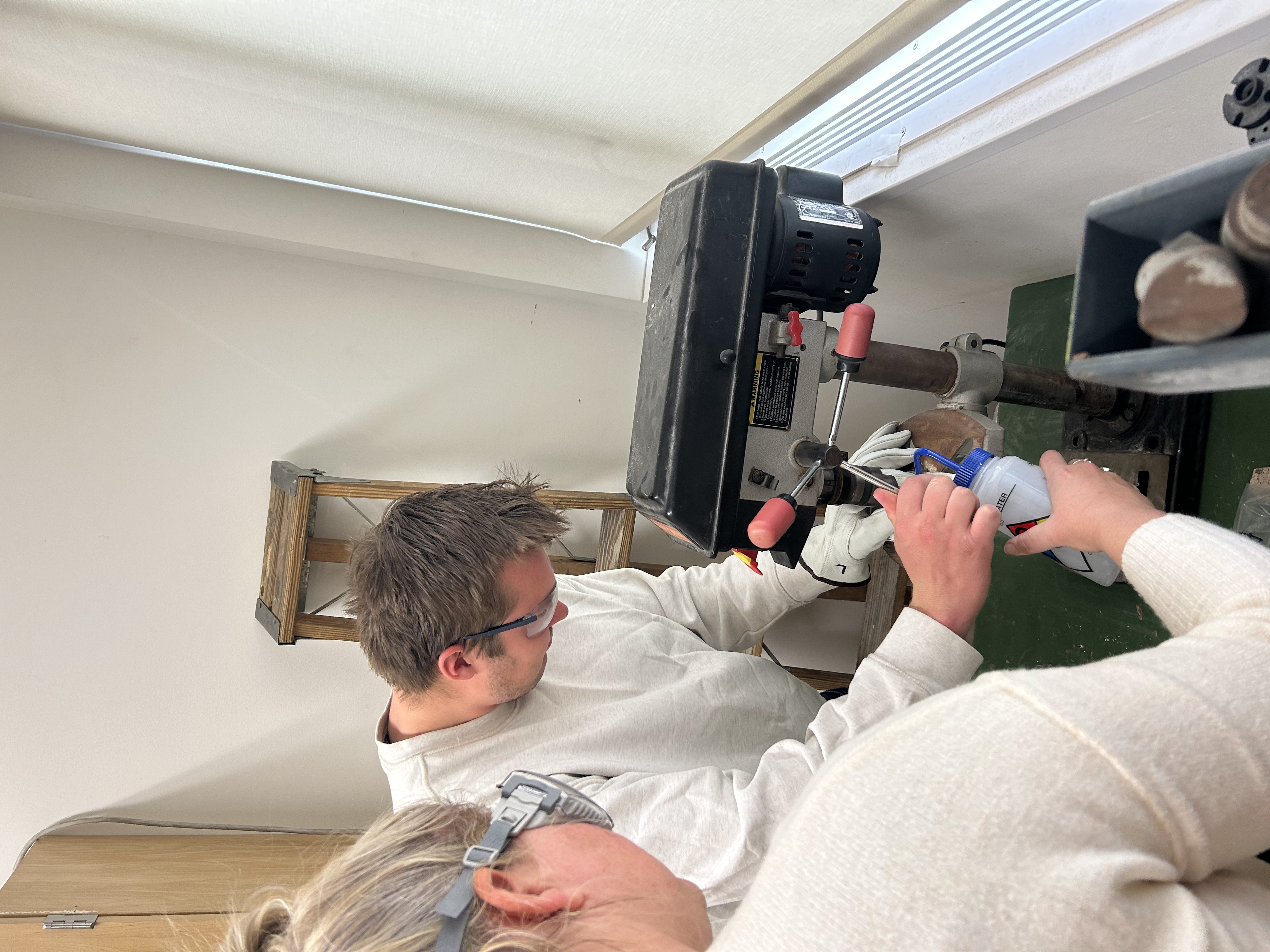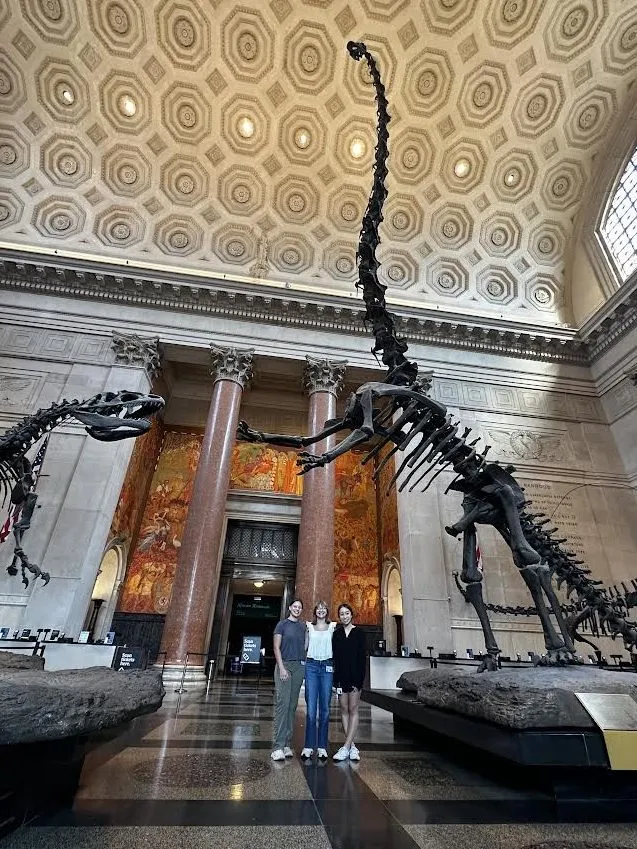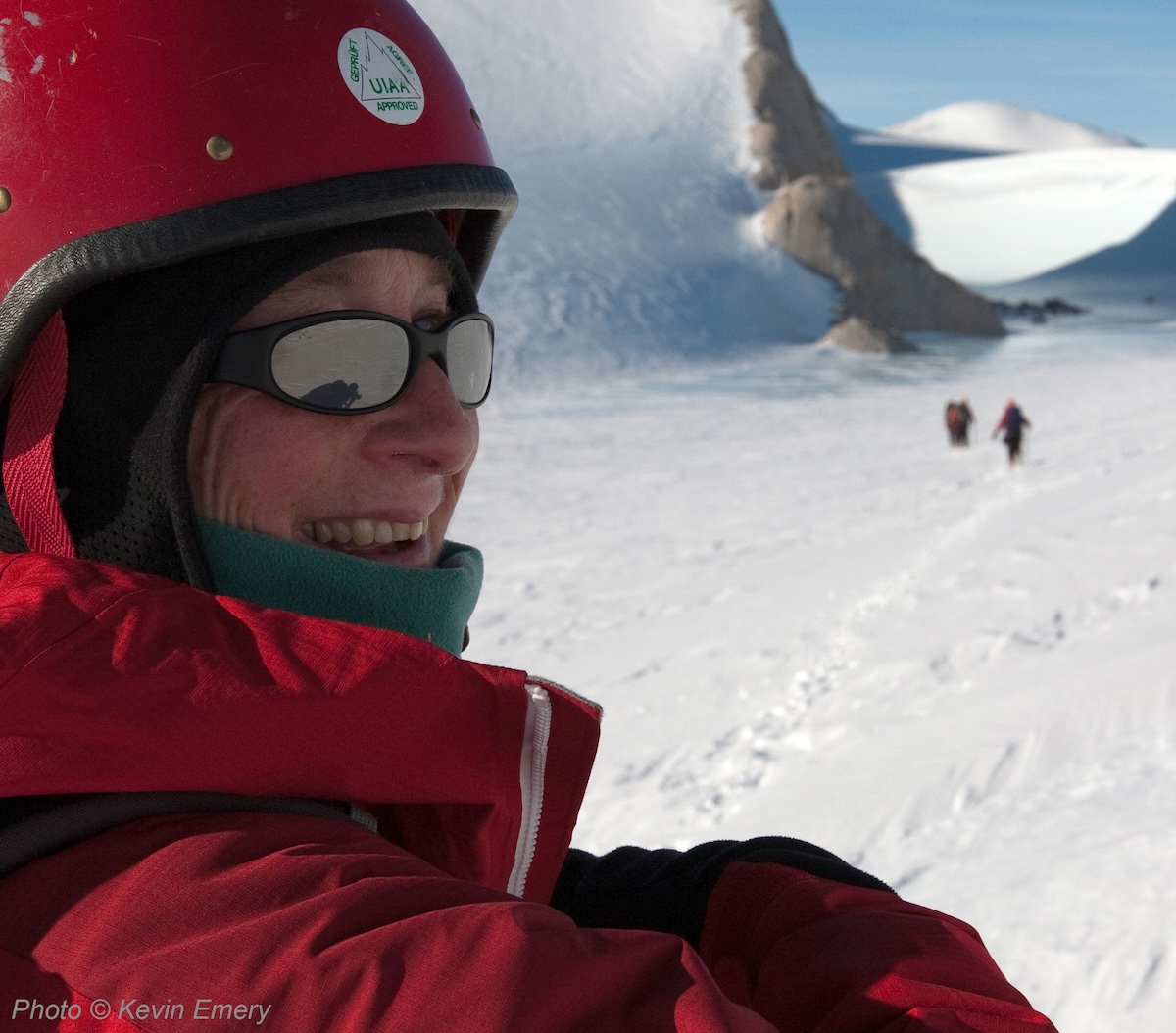Geology
Welcome to CC Geology!
Department Statements || Rocks on the Block || Careers in Geoscience
GY316 Field Analysis of Geological Structure (video made by Lucas Bush)
Department Statements
Rocks on the Block
Thanks to the Block Plan, CC Geology’s undergraduate program provides intensive and individualized hands-on experiences. Classes are limited to 25 students, with upper-level Geology courses typically enrolling ~15 students. Taking one class at a time allows for hands-on learning both in our laboratories and in the "outdoor classroom."
The Block plan allows faculty to work with students to pursue independent study and research projects throughout the academic year and breaks. Much of this original investigation takes place away from the CC campus. Many of our students perform research as part of a capstone project and internship opportunities.
Students who choose the geology major tend to have strong interests in both geology and environmental issues. Several of our geology faculty contribute to CC’s interdisciplinary Environmental Program. Geology coursework can include elective courses in environmental sciences and allow capstone research that addresses environmental issues. An alternative option is a major in Environmental Science, complemented with elective coursework in Geology.
Careers in the Geosciences
Job titles and employers of recent CC Geology graduates:
- Environmental Consulting for geotechnical firms
- emphasizes water quality and supply & urban planning
- Economic Geology
- exploration of materials in high demand by renewable energy and tech industry
- National Forest Service
- National Park Service
Programs admitting recent CC Geology graduates:
- Law school
- Medical school
- Graduate school
- Midwife training
- Physiotherapy training
- Guiding certification programs
- Computer science specializations
- Flight school
- Natural resources management training
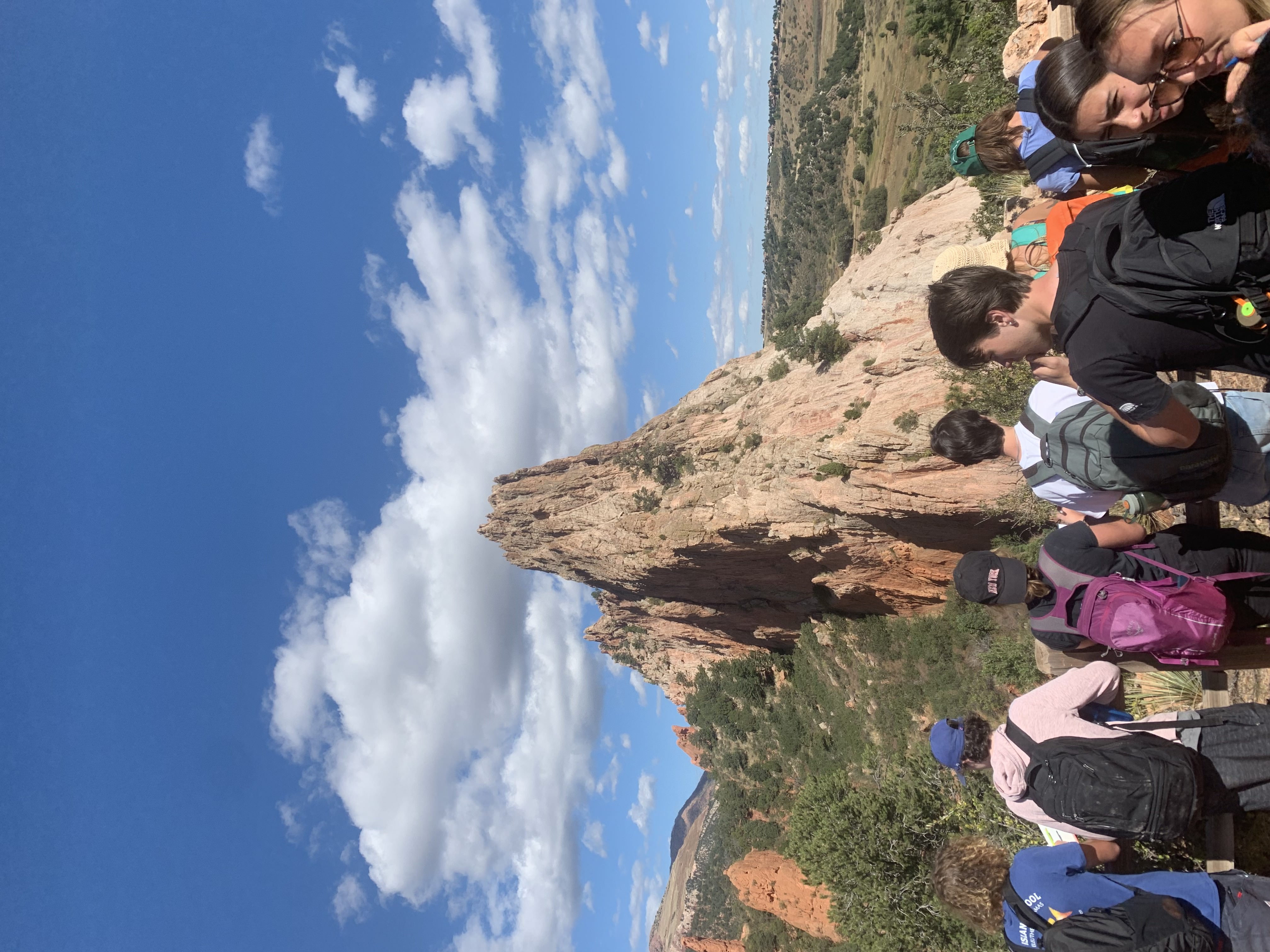
As a fundamental practice in geology, students in Michelle Gevedon's GY140 class attempt to locate cross-bedding in the tilted Lyons Sandstone, at the Garden of the Gods.





